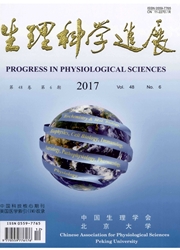

 中文摘要:
中文摘要:
近十多年来的研究表明,在神经退行性疾病的发生与发展中,脑内始终存在着以胶质细胞激活为主要特征的炎症反应。神经炎症是把双刃剑,一方面,它诱发或加重神经系统的退行性病变;另一方面,它在某些特定情况下有利于神经系统损伤的修复。激活的胶质细胞通过释放致炎细胞因子和活性氧自由基等分子介导神经炎症所致的神经元退行性病变,而由调节性T细胞产生的抗炎细胞因子及由神经元释放的抗炎神经肽能保护神经元抵抗神经炎症,从而减缓或减轻神经退行性疾病的进程。
 英文摘要:
英文摘要:
Over recent decade,studies have shown that inflammatory reaction characterized mainly by the activation of microglia in the brain is implicated in the pathogenesis and processes of neurodegenerative diseases.Neuroinflammation is a double-edged sword.On the one hand,it induces or aggravates the neurodegeneration in the nervous system,and on the other hand,it favors the recovery of the injured neurons in certain conditions.The activated glial cells release pro-inflammatory cytokines and reactive oxygen species,which mediate the neuroinflammation-induced neurodegenerative diseases.The anti-inflammatory cytokines synthesized by regulatory T cells and neuropeptides secreted by neurons protect the neurons against neuroinflammation,through which neurodegenerative diseases are alleviated.
 同期刊论文项目
同期刊论文项目
 同项目期刊论文
同项目期刊论文
 Interleukin-6 Reduces NMDA-Induced Ca(2+) Overload via Prevention of Ca(2+) Release From Intracellul
Interleukin-6 Reduces NMDA-Induced Ca(2+) Overload via Prevention of Ca(2+) Release From Intracellul 期刊信息
期刊信息
